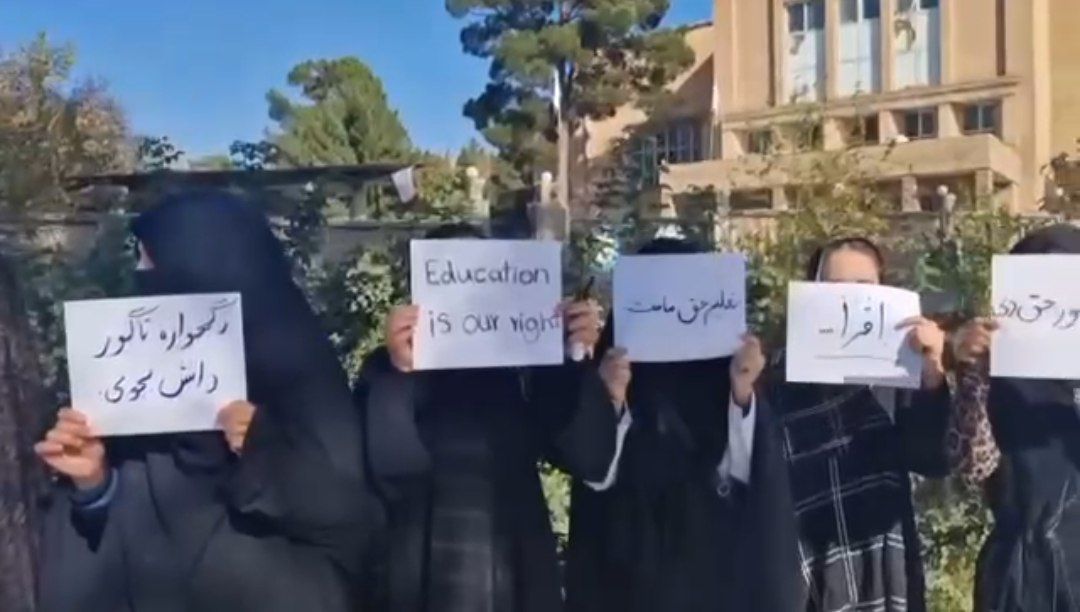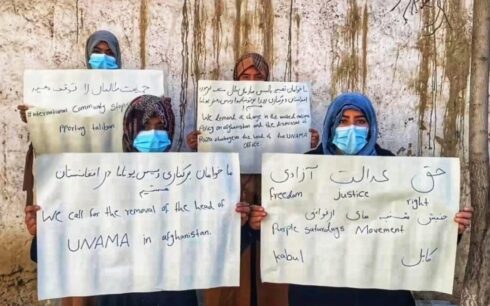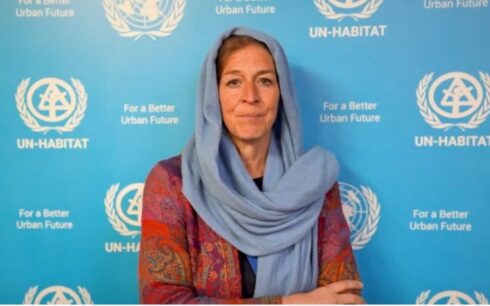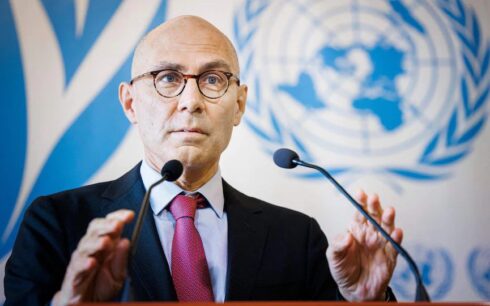HERAT, Afghanistan — A group of women and girls staged a protest outside the Taliban governor’s office in the western province of Herat on Thursday, decrying the recent ban on female participation in medical education.
Chanting slogans like “education is justice and learning,” the demonstrators described the directive as oppressive and a blow to their basic rights.
The Taliban’s decision to bar women from studying at medical institutions, including midwifery programs, has drawn widespread condemnation from international organizations, human rights groups, and former Afghan officials.
The United Nations Mission in Afghanistan (UNAMA) issued a statement warning that the ban would have a “detrimental impact” on the country’s healthcare system and broader development. Stephane Dujarric, the spokesperson for the United Nations, expressed grave concern, noting that the directive adds to the litany of restrictions imposed on women and girls since the Taliban’s return to power.
“If implemented, the reported directive would impose yet further restrictions on women and girls’ rights to education and access to healthcare,” Mr. Dujarric said at a press conference on Wednesday.
The Swedish Committee for Afghanistan called the ban a “devastating setback” for women’s access to essential healthcare, highlighting its potential to exacerbate Afghanistan’s already dire maternal mortality rate. According to U.N. estimates, the country’s maternal death rate is among the highest in the world, with over 600 deaths per 100,000 live births — nearly three times the global average.
Germany’s foreign minister, Annalena Baerbock, condemned the policy, describing it as a move that “literally erases Afghanistan’s future.” In a statement, she likened the conditions for Afghan women under the Taliban to life in a “prison,” criticizing the regime for denying basic healthcare and education. “The Taliban’s suspension of women’s health education not only denies basic rights but condemns countless lives,” she said.
Former Afghan officials also voiced outrage. Rahmatullah Nabil, a former national intelligence director, joined others, including cricket stars Rashid Khan and Mohammad Nabi, in condemning the decree. Masoom Stanekzai, who led the previous government’s peace negotiations with the Taliban, called the directive a symptom of autocratic rule, warning that such decisions could lead to Afghanistan’s ruin.
“The fate of the nation now hinges on the arbitrary decisions of one individual and a small group,” Mr. Stanekzai said. “Every ill-considered action brings the country closer to destruction.”
Human rights activists have described the ban as a clear violation of basic freedoms. Raheel Talash, an activist, lamented the loss of opportunity for young women who had aspired to careers in medicine.
“Girls whose only hope was medical education have now had that hope taken away from them as well,” he said.
Since seizing power in August 2021, the Taliban have imposed sweeping restrictions on women, including bans on higher education, most forms of employment, and public participation. Activists say the latest move is the culmination of a campaign to suppress the rights of Afghan women and girls entirely.





